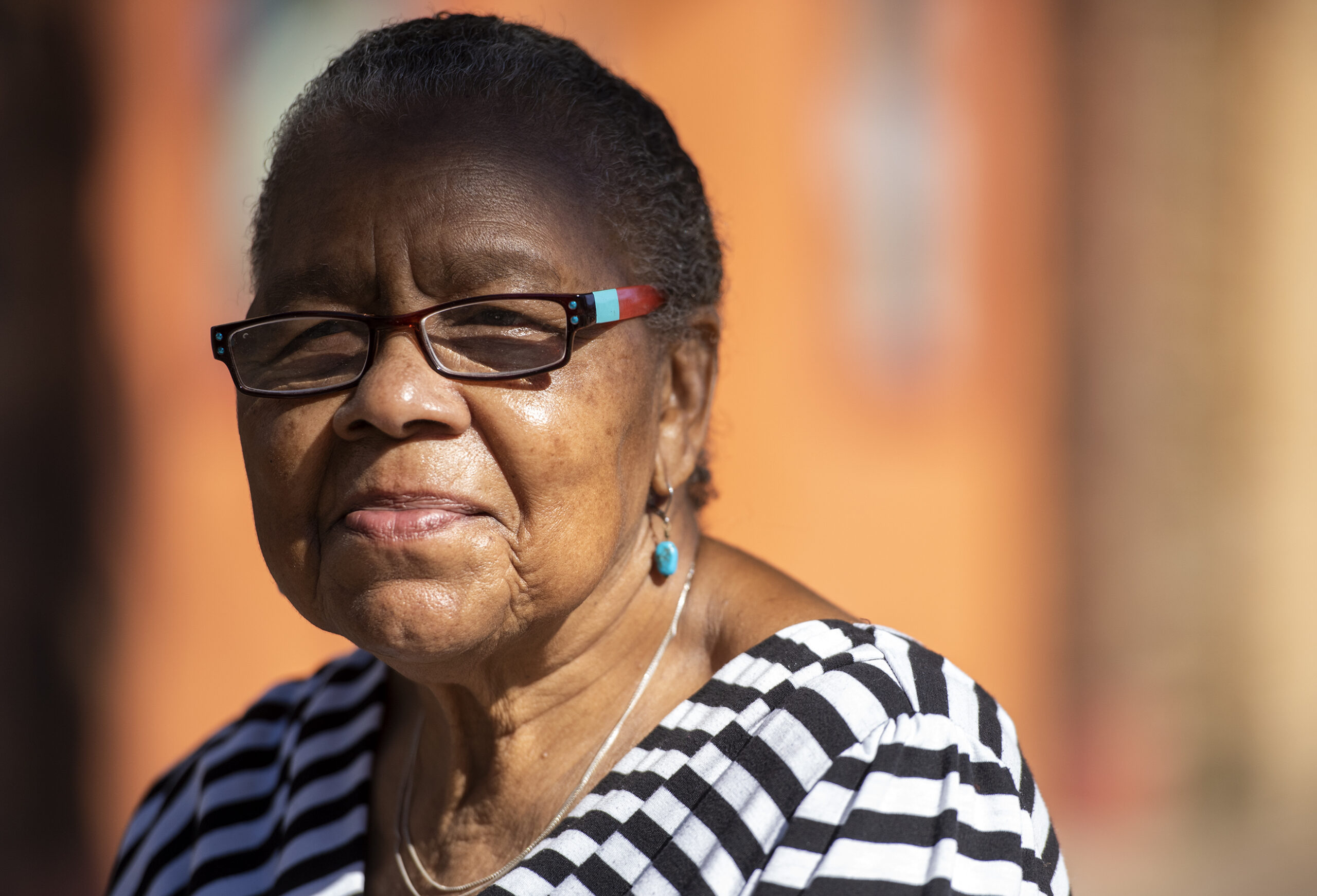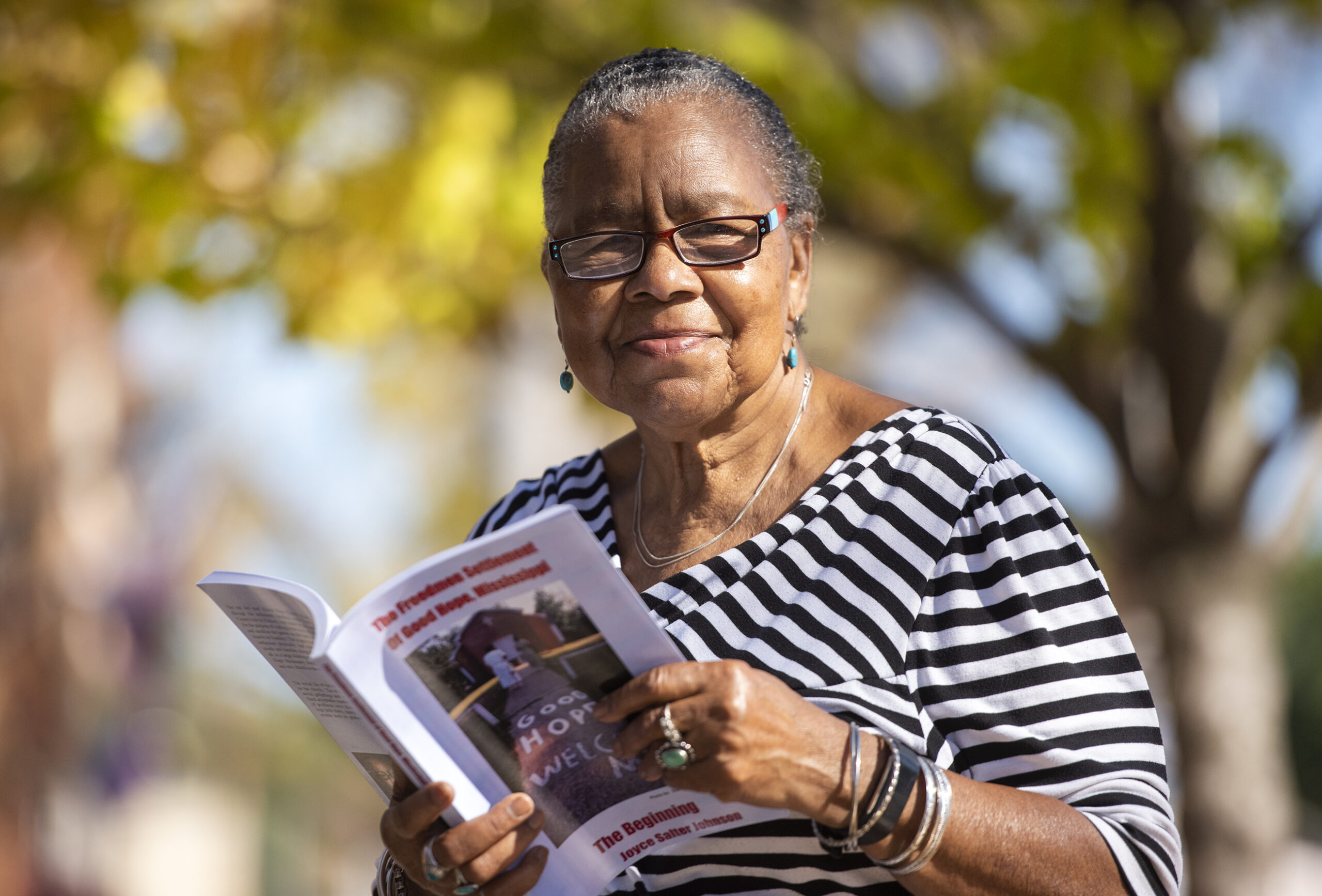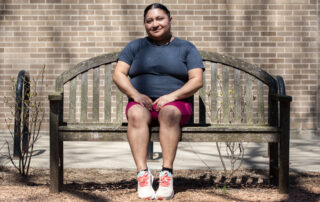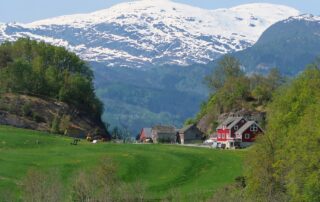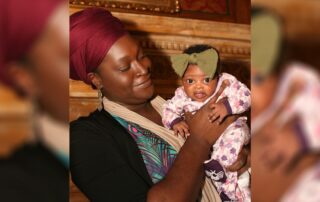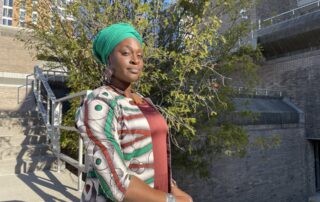Joyce Salter Johnson has loved history her entire life. But as a descendant of people who were enslaved, the Madison author’s family history — like the history of many Black families across the country — was largely struck from the historical record. Johnson had to take it upon herself to uncover her family’s roots.
===
Joyce Salter Johnson’s love of history started with a missing link in her family’s history.
She says her grandmother appeared to have no roots at all. She essentially lived alone in a nice house in the south that her grandfather sent money home to build, while he worked on the Illinois Central Railroad.
Johnson has always been a storyteller. The holes in her family’s history left room for her curiosity to thrive.
“Who we are is determined by where we come from — our parents, where they come from, their parents, where their parents come from, and a chain of unbreakable links that could explain not only our genetic makeup, but also our personalities,” Johnson said.
It took years to get answers.
“Before 1866, there was nothing,” Johnson said. “Nothing written in any archive about slaves. Nothing. The information that you needed to find out about the enslaved person was in the archives, or the databases, or the journals of the people that held them enslaved.”
Eventually, she traced the Salters back to 1792, when Hardy Salter was born to enslaved parents in Virginia.
The journey of the Salters took them to Good Hope, Mississippi. That’s where Johnson grew up. It was in 1951 that her family moved to Freeport, Illinois.
“I’ve even come to think of Freeport as my second hometown,” Johnson said. “I grew up with deep ties to both my birth hometown of Good Hope, Mississippi, and the hometown of my youth.”
Later in life, Johnson found her way to Madison, where she’s lived for decades.
But she didn’t leave behind her roots so easily. It was because of Freeport’s historical society that Johnson’s next historical endeavor took shape.
“We would always get these really nice publications about Freeport, and often it was a historic publication about Freeport, and there was never ever one picture of any African American in those publications,” Johnson said.
When she asked why, she was told that there weren’t records of African Americans living there, let alone pictures.
So she went back to do the research herself, seeking out the stories of a century’s worth of Black settlers in the county.
And there were stories to be told. Take Abram Follock, the second documented Black resident of the county, who, with some encouragement, was enrolled into an all-white community school in Freeport.
The school’s teacher David Sunderland faced pushback over Follock sharing a desk with a white student named Silas. When Silas reported his concern to his mother, she went to the school the next day to demand Follock be removed from the school.
“Mr. Sunderland acknowledged the mother’s concern,” Johnson said. “However, he rejected the dictate of the time and prevailed in this conviction that Abe should remain in school.”
“Mr. Sunderland was willing to face down a disdainful boy and an outraged mother to guard Abe’s access to learning,” she continued.
Johnson took the stories she’d uncovered back to the Freeport Historical Society, telling them that the stories needed to be included in the county’s historical record.
“In order for history to be accurate, it must present an inclusive record of all people,” Johnson said. “Unfortunately, in the past, a substantial portion of the history of the Negro and Stephenson County has been omitted.”
That omission allowed generations of the county’s residents, both Black and white, to grow up with a distorted view of Stephenson County and the roles African Americans played in its development, she continued.
“That’s what I had to give to them, and they said, ‘Of course, we’ll publish your book,’” Johnson said.
Two more books took shape from that, “The Early Black Settlers of Stephenson County, Illinois, 1830-1930,” and a corresponding pictorial history.
“I put people of African descent into history where they belong,” Johnson said. “I place people of African descent in that time and place, in that space — in that space, where they should have been automatically put.”
That philosophy carried over to another book on her first hometown, “The Freedmen Settlement of Good Hope, Mississippi.”
“These are textbooks,” Johnson said. “I’m glad to see them as not just my family history, but a textbook to be utilized for children, and to learn from this history. Not just my family, but the history of the early Black settlers of Stephenson County and the history of the Freedmen Settlement in Good Hope, Mississippi.”
As for Johnson, life has carried on through years of research and hard work. Side work as a daycare teacher between university classes eventually led her to buy the center she was working for, leading to decades of taking in children who needed extra care at Madison’s Early Childhood Learning Center.
Johnson’s work isn’t done just yet. She wants to get into consulting work for young women. And she still has more history to share with the world, an anthology that she intends to give permission for anyone to use and copy.
